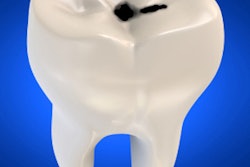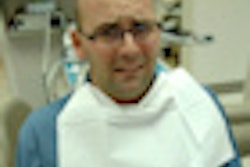
Are your patients happy with the care you provide, and if not, are you aware of it?
A new study that looked at how well patient satisfaction aligns with dentists' views has found that although most patients were satisfied with their dental care, dentists often were unaware when they were dissatisfied with some aspect of the treatment or visit (Journal of the American Dental Association [JADA], April 2014, Vol. 145:4, pp. 355-362).
Previous research has shown that healthcare providers can be poor judges of patients' preferences, in part, because patients are often unable to express their expectations and needs, the study authors noted.
The main aim of the current study was to examine the dentist's view of the patient's experience and concordance with the patient's rating of satisfaction by using specific areas of a restorative dental visit that are important to patients.
"In particular, we focused on the extent to which dentists were aware of patients' viewpoints when patients did not report being satisfied," the authors wrote.
This study builds on the researchers' previous work in which they looked at the components of patient satisfaction with a dental restorative visit (JADA, September 2012, Vol. 143:9, pp. 1002-1010).
A patient's judgments of a dentist's skills and quality of care are based on personal interactions with the dentist, the level of comfort the patient perceives while receiving care, and any experience of post-treatment sensitivity, they concluded in that study.
In this latest study, the authors used the National Dental Practice-Based Research Network, a consortium of dental practices and dental organizations focused on improving the scientific basis for clinical decision-making, to conduct the study.
The study included 197 network practitioners who were recruited through continuing education courses and mass mailings. The dentists then recruited patients with defective restorations that needed to be replaced or repaired.
A total of 5,315 patients completed a satisfaction survey consisting of 20 items. The surveys were mailed back directly to the network regional coordinators. The dentists also completed a form about the visit and forwarded it to the regional center. The authors primarily focused on items from the dentist-completed questionnaire, which was designed to assess the dentists' views of the patients' satisfaction.
They compared answers on the dentists' questionnaire to patient responses about satisfaction level with the overall dental treatment and visit, friendliness of dentist, whether they were given a choice to choose the material to fix their tooth, whether the dental procedure was explained before it started, and how the dentist limited pain, fear, and anxiety during the procedure.
Here are some of the key results:
- 4,589 patients (86%) rated themselves as satisfied or very satisfied with the overall visit.
- Among the 726 patients who were dissatisfied, dentists were aware in 42 cases (1%) and unaware in 684 cases (13%).
- 4,861 patients (91%) rated themselves as satisfied with the dentists' friendliness.
- For the 454 patients who were not satisfied, 37 dentists (1%) correctly identified the patients' dissatisfaction, whereas in the case of the remaining 417 patients, dentists responded incorrectly that they had been perceived as friendly.
- Regarding information about the procedure, 3,701 (70%) of the 5,315 patients rated themselves as satisfied.
- For the 1,614 patients who were dissatisfied, dentists correctly perceived 947 patients (18%) as having an interest in information about the restorative procedure and incorrectly perceived 667 patients (13%) as not having an interest.
- As for material choice, 3,396 (64%) of the 5,315 patients rated themselves as satisfied.
- For the 1,919 patients who were dissatisfied, dentists correctly perceived 736 patients (14%) as having a strong preference for the restorative material and incorrectly perceived 1,183 patients (22 %) as not having a strong preference.
Patients seek technical competence but also interpersonal skills in a dentist to reduce their anxiety and, ultimately, to be satisfied with their visit, according to the study authors.
Male dentists are less likely than female dentists to be aware of the importance to patients of both procedural information and choice of restorative material, they also noted. They added that there could be two reasons for this according to research findings. One is that female providers conduct longer consultations, and the other is that patients' vary in their responses depending on the clinician's sex.
Nevertheless, the primary finding of the study is that when dental patients were dissatisfied with some aspect of their restorative treatment or visit, dentists often were unaware of it, according to the authors.
"This was most common with regard to patients' desire for greater communication and, surprisingly, occurred most often during less complicated restorative procedures," they wrote.
The authors stressed the importance of improved patient-centered care in which dentists need to determine patients' desires, expectations, and perceptions of the dental care experience, and then manage the care of patients or correct behavior as needed for all cases.
"Reaching a mutual understanding of the nature of the problem and its solutions requires dynamic communication during dental visits," they concluded. "It appears that for some dentist-patient dyads, this does not occur."



















